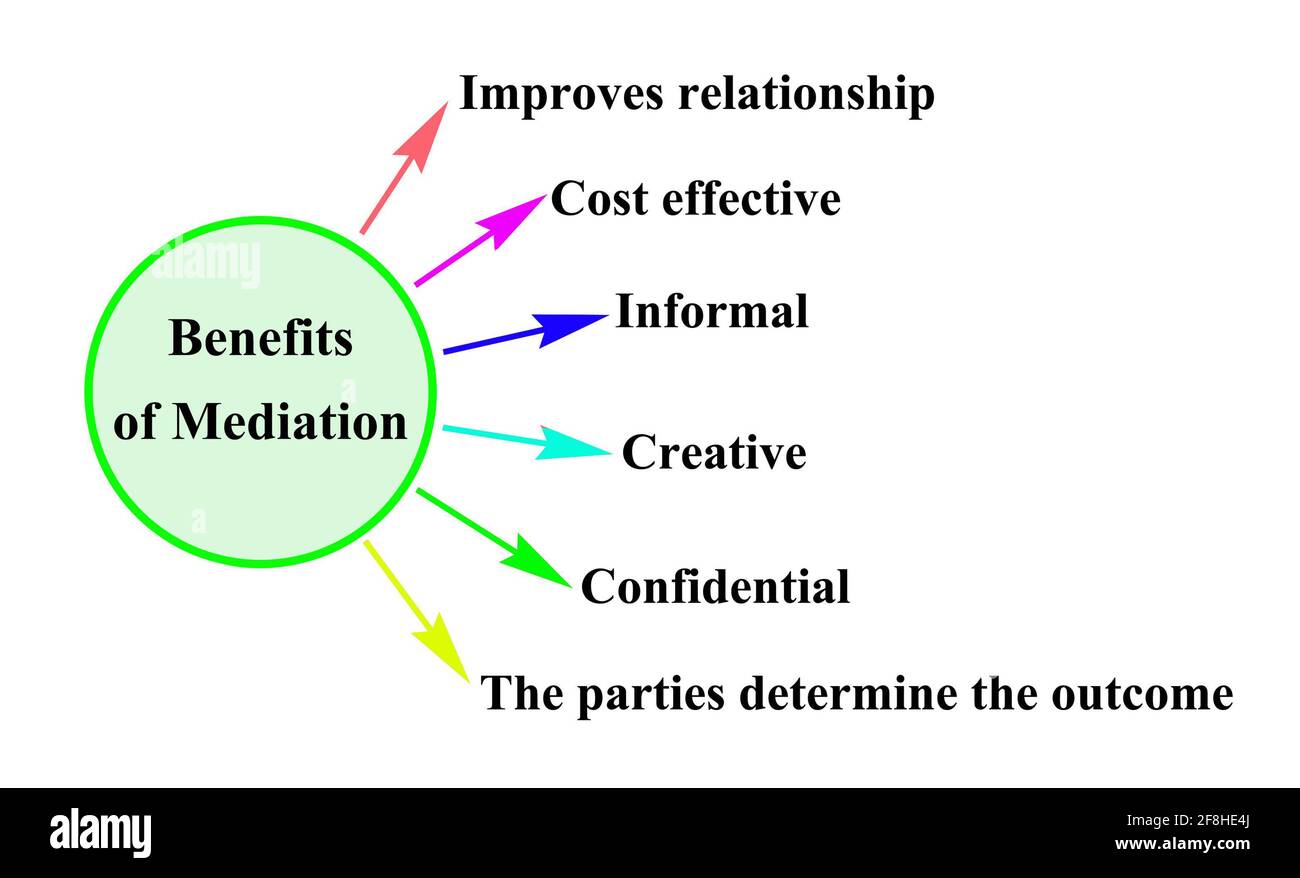The Benefits of Mediation
Mediation is a powerful process that allows individuals or parties to resolve conflicts with the help of a neutral third party. It provides a structured and confidential environment where participants can engage in open communication, negotiate, and find mutually agreeable solutions. In this article, we will explore the numerous benefits of mediation and how it can positively impact various aspects of your life.
Enhanced Communication and Understanding
One of the key advantages of mediation is its ability to foster enhanced communication and understanding between conflicting parties. Unlike traditional litigation, where each side may feel defensive or hostile, mediation encourages open dialogue and active listening. Through this process, participants gain a deeper understanding of each other’s perspectives, motivations, and underlying interests. This increased understanding often leads to more effective problem-solving and the development of creative solutions that may not have been possible otherwise.
Empowerment and Control
Mediation empowers individuals to take an active role in resolving their disputes. Unlike a court setting where a judge makes the final decision, mediation allows participants to actively participate in the decision-making process. This sense of control over the outcome can lead to greater satisfaction and a higher likelihood of compliance with the agreed-upon solutions. Mediation also provides a safe space for participants to express their emotions and concerns, ensuring that their voices are heard and validated.
Cost-Effectiveness
Compared to litigation, mediation is often a more cost-effective alternative for resolving conflicts. Court proceedings can be lengthy and expensive, involving attorney fees, court costs, and other related expenses. In contrast, mediation typically requires fewer sessions and can be completed in a shorter timeframe. This not only reduces financial burdens but also allows parties to allocate their resources toward finding beneficial solutions rather than engaging in protracted legal battles.
Preservation of Relationships
Mediation focuses on finding win-win solutions that preserve relationships, particularly in cases where ongoing interactions are necessary. Unlike litigation, which can often result in a winner and a loser, mediation seeks to find common ground and maintain positive connections. This is particularly valuable in family disputes, business partnerships, or workplace conflicts, where preserving relationships is essential for long-term success.
Confidentiality and Privacy
Confidentiality is a cornerstone of the mediation process. Unlike court proceedings, which are generally open to the public, mediation provides a private and confidential setting. This ensures that sensitive information and discussions remain protected, allowing participants to speak freely without the fear of public exposure. The confidential nature of mediation can encourage parties to be more forthcoming, leading to a more comprehensive exploration of potential solutions.
Flexibility and Customization
Mediation offers a flexible and customizable approach to conflict resolution. The process can be tailored to meet the specific needs and preferences of the parties involved. Unlike litigation, which follows strict procedural rules, mediation allows participants to shape the process according to their unique circumstances. This flexibility enables parties to explore a wide range of potential solutions and find outcomes that are mutually beneficial and satisfactory.

Mediation is a valuable tool for resolving conflicts and finding mutually agreeable solutions. Its benefits extend beyond the immediate resolution of disputes, fostering enhanced communication, empowerment, cost-effectiveness, preservation of relationships, confidentiality, and flexibility. By embracing mediation, individuals and organizations can unlock the potential for positive change and create a more harmonious and productive environment.
Frequently Asked Questions about Benefits of the Mediation
1. What is mediation?
Mediation is a voluntary and confidential process in which a neutral third party, called a mediator, helps parties in a dispute to communicate and negotiate a resolution.
2. How does mediation differ from litigation?
Unlike litigation, mediation allows parties to have control over the outcome and reach a mutually agreeable solution, rather than having a judge make a decision.
3. What are the main benefits of mediation?
Mediation offers several benefits, including cost-effectiveness, time efficiency, confidentiality, preservation of relationships, and increased satisfaction with the outcome.
4. Is mediation suitable for all types of disputes?
Mediation is a flexible process that can be used for various types of disputes, such as family matters, workplace conflicts, business disputes, and community issues.
5. How does mediation promote communication?
Mediators facilitate open and constructive communication between the parties, helping them to express their concerns, interests, and needs in a safe and non-confrontational environment.
6. Can mediation be legally binding?
Mediation itself is not legally binding, but if an agreement is reached during mediation, it can be formalized into a legally binding contract.
7. What qualifications do mediators have?
Mediators are typically trained professionals with expertise in conflict resolution and negotiation. They may have certifications or memberships in professional mediation organizations.
8. How long does mediation usually take?
The duration of mediation depends on the complexity of the dispute and the willingness of the parties to cooperate. Some cases can be resolved in a single session, while others may require multiple sessions.
9. Can lawyers be present during mediation?
Yes, parties may choose to have their lawyers present during mediation to provide legal advice and support. However, the mediator remains neutral and facilitates the process.
10. What happens if mediation fails?
If mediation fails to reach a resoresolven explore other options, such as arbitration or litigation, to resolve their dispute. However, mediation often helps parties to narrow down the issues and better understand each other’s perspectives.




